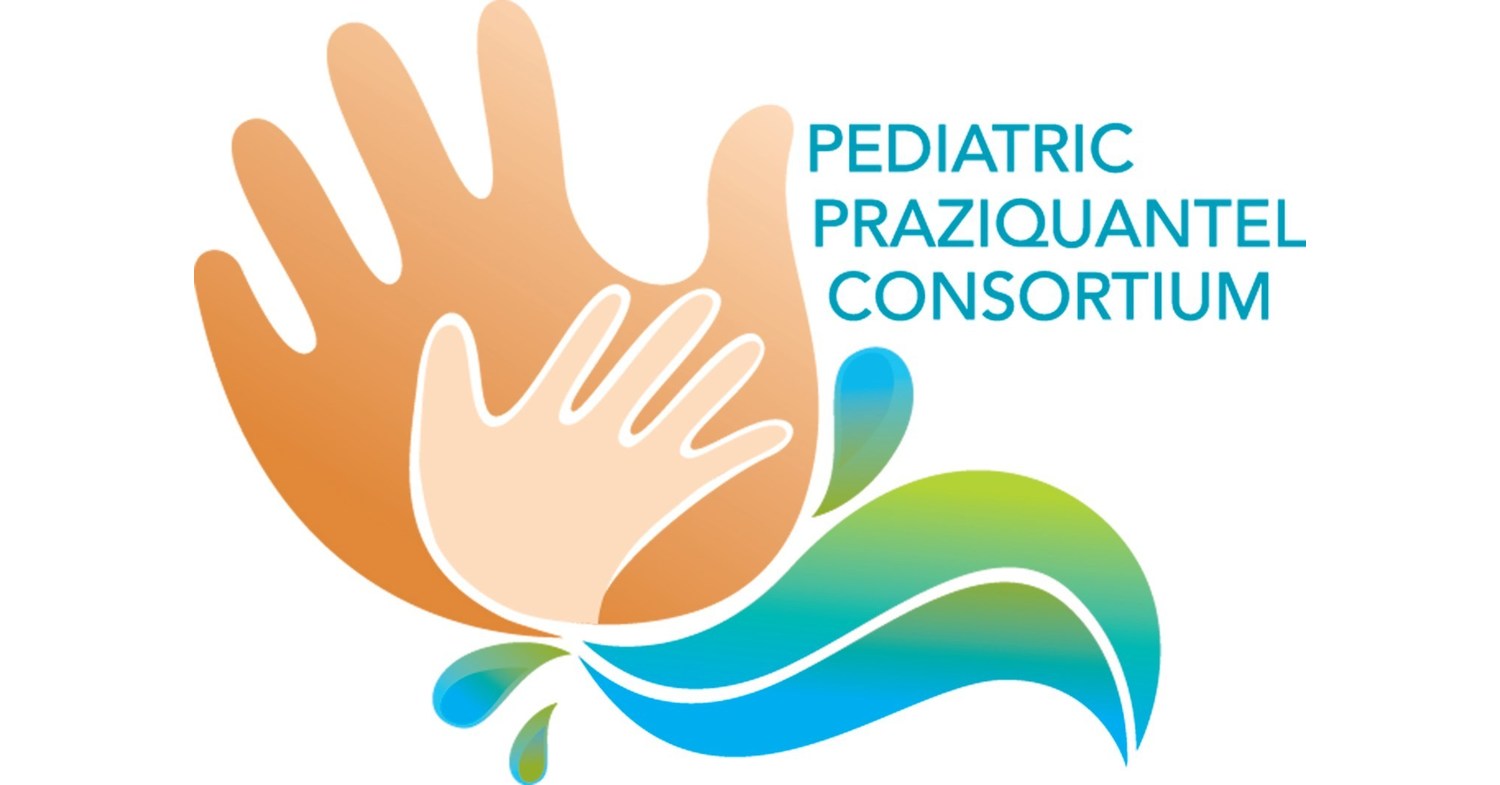
UTRECHT, The Netherlands, May 22, 2018 /PRNewswire/ —
Complementary experience offered by the Kenya Medical Research Institute (KEMRI) and the Université Félix Houphouët-Boigny (UFHB) in conducting clinical trials in sub-Saharan Africa will be instrumental for the success of the Consortium’s phase III program
KEMRI (Kenya) and UFHB (Côte d’Ivoire) are reinforcing the non-profit Pediatric Praziquantel Consortium. The Consortium’s goal is to make a child-friendly praziquantel treatment available to preschool-age children suffering from schistosomiasis. By providing the Principal Investigators and clinical trial site teams for the phase III pediatric clinical study, the new partners will play a crucial role at this pivotal stage in the development program.
(Logo: https://mma.prnewswire.com/media/694765/Pediatric_Praziquantel_Consortium_Logo.jpg )
Schistosomiasis is one of the most prevalent parasitic diseases worldwide, with over 206 million people infected[1], of which more than 10% preschool-age children. Preventive chemotherapy mass treatment programs using 600mg praziquantel tablets are available for school-age children and adults at risk. However, preschool-age children are left untreated in public health campaigns as there is currently no appropriate pediatric formulation of praziquantel.
The Pediatric Praziquantel Consortium aims to develop, register and make available a 150mg orodispersible praziquantel tablet, palatable for small children. “I am very pleased to welcome our new partners,” commented Dr Elly Kourany Lefoll, Consortium Program Lead and Head of Global Health Development Program, Global Health Institute (Switzerland) of Merck KGaA, Darmstadt, Germany. “UFHB and KEMRI will provide their expert support for the implementation of the phase III trial in Schistosoma-infected preschool-age children, planned to start in 2018. They have the necessary infrastructure in place and significant experience in conducting studies in children living in remote areas in extreme poverty and carrying chronic and debilitating parasitic infections such as schistosomiasis. Combined with our existing resources, this will be instrumental for the success of the phase III program.”
UFHB is already involved in conducting the ongoing phase II clinical trial in Côte d’Ivoire. Prof Eliézer N’Goran, Director of the department of Zoology and unit of parasitology at the UFHB, said, “My team and I are very excited to join the Pediatric Praziquantel Consortium. Since the 1990s, UFHB has actively pursued research in the areas of epidemiology, ecology, clinical research, and public health issues of schistosomiasis, which remain a huge challenge in my country today.”
KEMRI will also provide decades of expertise in schistosomiasis research. “My unit is located and operates from western Kenya, along the shores of Lake Victoria, an area of high endemicity for schistosomiasis” said Dr Maurice Odiere, Head of the Neglected Tropical Diseases Unit at KEMRI’s Centre for Global Health Research. “The researchers in my team and I look forward to sharing our experience in schistosomiasis clinical field studies, and to mobilizing communities in endemic regions for participation in the research.”
The phase III program, co-funded by the Consortium, the European & Developing Countries Clinical Trials Partnership and the Global Health Innovative Technology Fund, comprises the confirmatory clinical trial in Schistosoma-infected preschool-age children. If successful, the trial will confirm the efficacy and safety of the praziquantel orodispersible tablet formulation and dose, selected based on phase II results. The Consortium aims to submit a Marketing Authorization Application in 2020, and to have the product available in 2021, for launch in the first endemic countries in Africa.
GOT NEWS? click here
Google News, Bing News, Yahoo News, 200+ publications
About the Pediatric Praziquantel Consortium
The Pediatric Praziquantel Consortium is an international not-for-profit partnership that aims to reduce the global disease burden of schistosomiasis by addressing the medical need of infected preschool-age children. Its mission is to develop, register and provide access to a suitable pediatric praziquantel formulation for treating schistosomiasis in this age group. The pediatric formulation under investigation has been designed to be smaller, exhibit an improved palatability and be orally dispersible compared to the current commercial formulation. The Consortium is financially supported by Merck KGaA, Darmstadt, Germany, in-kind contributions by partners and by grants from the Bill & Melinda Gates Foundation (2013), from the Global Health Innovative Technology Fund (2014, 2015 and 2016), and the European & Developing Countries Clinical Trials Partnership (2018). The EDCTP2 programme is supported under Horizon 2020, the European Union’s Framework Programme for Research and Innovation.
For more information, visit http://www.pediatricpraziquantelconsortium.org.
Consortium Partners
- Merck KGaA, Darmstadt, Germany, leads the program and provides expertise and support relating to PZQ, including internal resources from different areas needed for clinical development – drug product manufacturing; preclinical; clinical and regulatory. Also responsible for the development and manufacturing of the L-PZQ Active Pharmaceutical Ingredient (API).
- Astellas Pharma Inc. (Japan) has developed the new pediatric PZQ formulations, and provides expert advice on clinical development in children, and pharmacokinetic modeling.
- Swiss Tropical and Public Health Institute (Switzerland) is a not-for-profit Institute internationally renowned for its research, services, teaching and training in global health. It contributes with extensive experience in helminths biological and pharmacological research; epidemiology; and clinical research in endemic regions.
- Lygature (The Netherlands), a not-for-profit foundation, acts as the independent coordinator of the Consortium, providing governance in terms of progress, finance and collaboration. Since 2006, Lygature has supported close to a hundred public-private partnerships in the field of life sciences & health, including poverty-related diseases.
- Farmanguinhos (Brazil), the federal governmental pharmaceutical laboratory of the Fiocruz Foundation in Brazil, brings unique expertise to produce and distribute the new pediatric formulations product in endemic countries.
- The Schistosomiasis Control Initiative (United Kingdom), at Imperial College London, is a non-profit initiative that supports treatment programs against schistosomiasis and soil-transmitted helminthiasis in sub-Saharan African countries and Yemen. It will facilitate preparation and implementation of the Access and Delivery plan.
- Kenya Medical Research Institute (Kenya) provides expertise on local disease epidemiology, clinical trials and clinical care and will be responsible for the conduct of the trials in Kenya according to Good Clinical Practice and national and local regulatory and ethics standards.
- Université Félix Houphouët-Boigny (Côte d‘Ivoire) was involved in the phase II clinical trials of the pediatric praziquantel formulation. It provides expertise on local disease epidemiology, clinical trials and clinical care and will be responsible for the phase III trials in Côte d’Ivoire according to Good Clinical Practice and national and local regulatory and ethics standards.
1. WHO Fact sheet: http://www.who.int/en/news-room/fact-sheets/detail/schistosomiasis
SOURCE Pediatric Praziquantel Consortium





